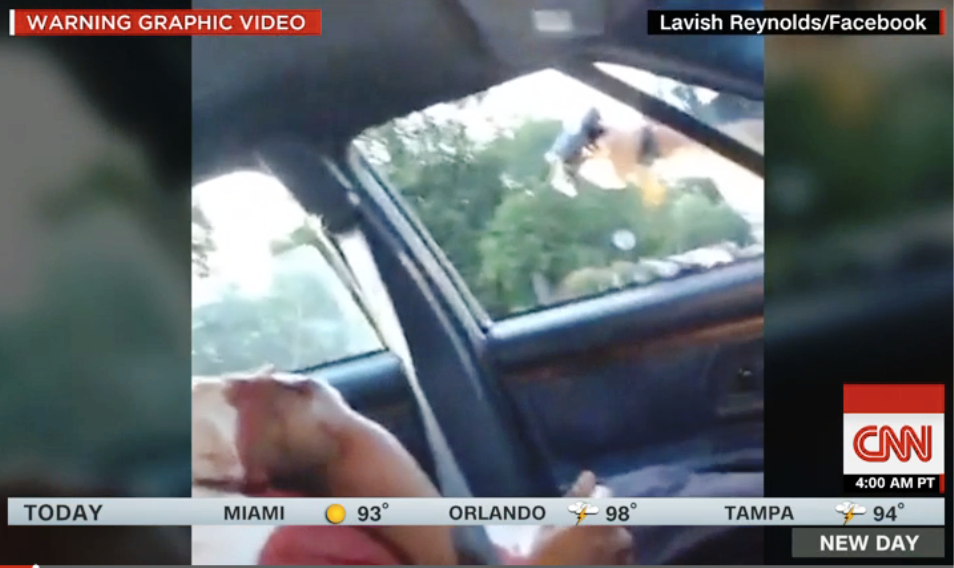
Twenty-four hours after the police shooting death of Alton Sterling outside a Baton Rouge convenience store, Philando Castile was shot and killed in Falcon Heights, Minnesota.
Both men were black. Both were killed by police under highly questionable circumstances. Castile had no prior criminal record, was driving a car occupied by his girl friend and her four-year-old daughter. Castile had been stopped by police for a broken taillight. He was asked for his license and registration and was reaching in his pocket for it when the police officer shot him.
Speaking about the Castile incident, Minnesota Governor Mark Dayton said, “Would this have happened if those passengers, the driver and the passengers, were white? I don’t think it would have. So I’m forced to confront, and I think all of us in Minnesota are forced to confront, that this kind of racism exists. Nobody should be shot and killed in Minnesota … for a taillight being out of function,” the governor said. “Nobody should be shot and killed while seated still in their car. I’m heartbroken.”
Twenty-four hours earlier, Alton Sterling was selling CD’s outside the Triple S Food Mart in Baton Rouge, LA with the permission of the store’s owner.
CNN reported (July 6), Sterling was approached by a homeless man who asked him for money. “The man was persistent, and Sterling showed him his gun, the source said.
“ ‘I told you to leave me alone,’ Sterling told the man, according to the source
“The homeless man then used his cell phone to call 911, the source said.
“A graphic cell phone video of the shooting was shared widely on social media, quickly sparking local protests and drawing national attention. Federal authorities have taken charge of the investigation. Sterling was shot outside the Baton Rouge convenience store after an encounter with two police officers. The officers can be seen in the video on top of him before shots were fired.”
Louisiana state police, the FBI and the U.S. attorney’s office in Baton Rouge have all begun investigations as has the U.S. Justice Department’s Civil Rights Division.
In an e-mail exchange, Felix Nater, a former federal agent, offered this initial assessment:
“Police commanders & police chiefs should be held accountable for those incidents. They live the attitudes and the culture created that empowers those police officers to harbor such fear of African Americans. To add insult to injury, training is not provided by the local police departments as part of their mandatory training, hence, placing the police officers in tough decisions results in fear choices that escalate to violence.”
In a New York Times op-ed (July 7), contributor Michael Eric Dyson perhaps sums up the bigger picture:
“It is clear that you, white America, will never understand us. We are a nation of nearly 40 million black souls inside a nation of more than 320 million people. We don’t all think the same, feel the same, love, learn, live or even die the same.
“You will never understand the helplessness we feel in watching these events unfold, violently, time and again, as shaky images tell a story more sobering than your eyes are willing to believe: that black life can mean so little. That Alton B. Sterling and Philando Castile, black men whose deaths were captured on film this past week, could be gone as we watch, as a police officer fires a gun. That the police are part of an undeclared war against blackness.
“You can never admit that this is true. In fact, you deem the idea so preposterous and insulting that you call the black people who believe it racists themselves. In that case the best-armed man will always win.
“You say that black folks kill each other every day without a mumbling word while we thunderously protest a few cops, usually but not always white, who shoot to death black people who you deem to be mostly ‘thugs.’ …
“At birth, you are given a pair of binoculars that see black life from a distance, never with the texture of intimacy. Those binoculars are privilege; they are status, regardless of your class. In fact the greatest privilege that exists is for white folk to get stopped by a cop and not end up dead when the encounter is over.
“Those binoculars are also stories, bad stories, biased stories, harmful stories, about how black people are lazy, or dumb, or slick, or immoral, people who can’t be helped by the best schools or even God himself. These beliefs don’t make it into contemporary books, or into most classrooms. But they are passed down, informally, from one white mind to the next. …
“You cannot know what terror we live in. You make us afraid to walk the streets, for at any moment, a blue-clad officer with a gun could swoop down on us to snatch our lives from us and say that it was because we were selling cigarettes, or compact discs, or breathing too much for your comfort, or speaking too abrasively for your taste. Or running, or standing still, or talking back, or being silent, or doing as you say, or not doing as you say fast enough. …
“We feel powerless to make our black lives matter. We feel powerless to make you believe that our black lives should matter. We feel powerless to keep you from killing black people in front of their loved ones. …
“We cannot hate you, not really, not most of us; that is our gift to you. We cannot halt you; that is our curse.”
We can and should do better.
Comments










